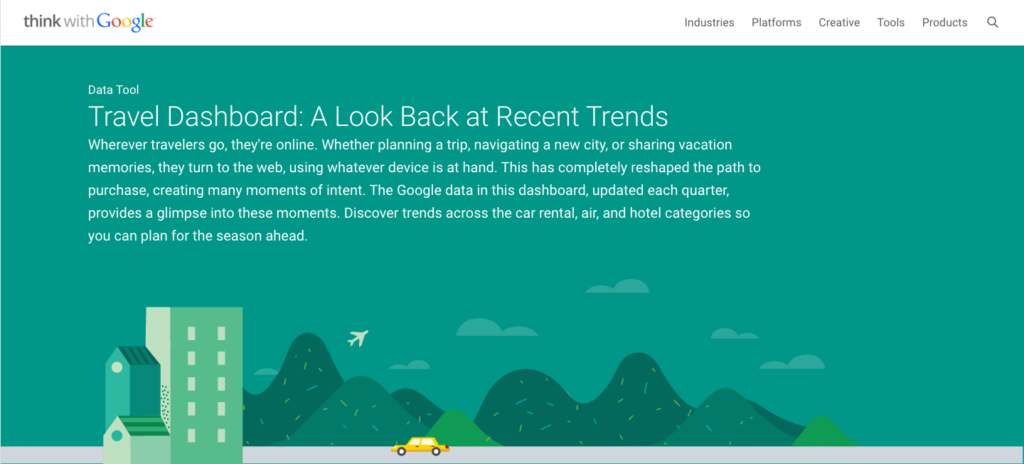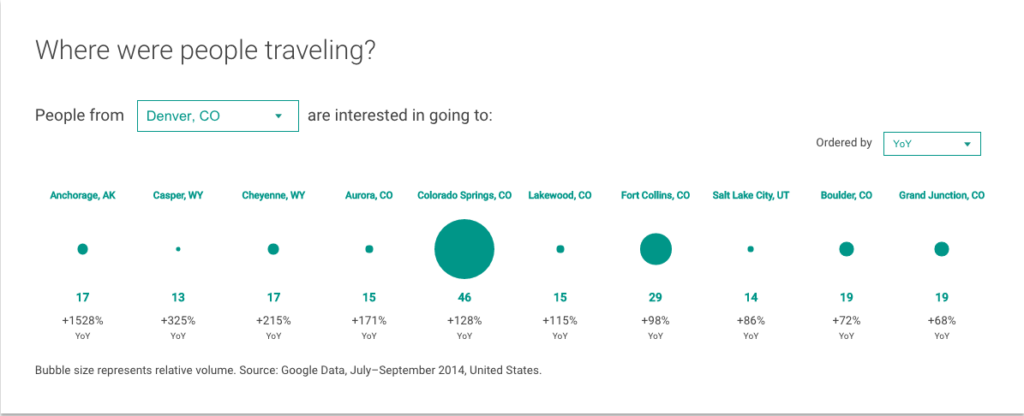

On Monday, Google’s research branch, Think with Google launched their brand new travel dashboard. This product is designed to help hospitality brands and marketers make informed decisions based off of conglomerated data and trends Google has gathered for each quarter. Users are able to aggregate data based on its relation to three categories: hotels, flights, and car rentals. The dashboard features a chart displaying all relative search volume from the past year for each class throughout the year. For example, in the last calendar year, hotel queries peaked in the week of July 20th.Additionally, the dashboard includes a tool that allows visitors to see where people were traveling to from various large markets like New York, Atlanta, and San Francisco. Results can be further broken down into either index value or changes in volume year over year.

Another interesting tool allows users to turn the tables and examine where visitors to certain large or emerging markets are traveling from. This data should allow marketers to make better informed decisions when it comes to geo targeting their advertising efforts.

Visitors are able to see the top travel related questions searchers are asking in order to create timely content or feature answers on their websites. In case you were wondering, questions concerning optimal flight booking window and geographical queries were top of mind for most searchers.If brands and marketers are interested in mobile search volume in their respective branches of hospitality, Think for Google provides YoY comparison data for searches related to hotels, tours, air, cruises, and car rentals. In the last year, mobile searches for hotels increased by nearly half which is certainly something brands should take note of when weighing the value of mobile advertising and website responsiveness.Most popular hotel itinerary, and a list of of the top 5 hotels in search, are also included.The travel dashboard isn’t something that you should 100% depend on for developing a marketing strategy, but it is certainly a useful tool for uncovering wider trends in the industry.






